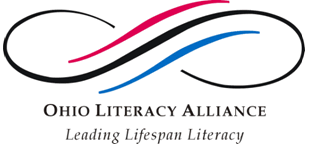
Keyword - Leadership
- Leadership
- Information for all who take leadership positions in literacy, including teachers and administrators, students and parents, policy makers and citizens
Agee, J. (2000). What is effective literature instruction? A study of experienced high school English teachers in differing grade- and ability- level classes. Journal of Literacy Research, 32, 303-348.
Ares, N. M., & Peercy, M. M. (2003). Construction literacy: How goals, activity systems, and text shape classroom practice. Journal of Literacy Research, 35, 633-662.
Bean, T., & Readence, J. (2002). Adolescent literacy: Charting a course for successful futures as lifelong learners. Reading Research and Instruction, 4, 203-210.
Bean, T. W., Valerio, P. C., & Senior, H. M. (1999). Intertextuality and the e-mail discussion of a multicultural novel in secondary American literature. In T. Shanahan & F. Rodriguez-Brown (Eds.), Forty-eighth yearbook of the National Reading Conference (pp. 376-386). Chicago: National Reading Conference.
Fairbanks, C. M., & Broughton, M. A. (2003). Literacy lessons: The convergence of expectations, practices, and classroom culture. Journal of Literacy Research, 34, 391-428.
Franzak, J.K. (2004). Constructing struggling readers: Policy and the experience of eighth-grade readers. In C. Fairbanks, J. Worthy, B. Maloch, J. Hoffman, & D. Schallert (Eds.),Fifth-third yearbook of the National Reading Conference (pp. 189-205). Oak Creek, WI: National Reading Conference.
Harmon, J.M., Keehn, S., & Kenney, M.S. (2004). Tutoring struggling readers: A program investigation. Reading Research and Instruction, 44, 46-74.
Hobbs, R. & Frost, R. (2003). Illuminating constructivism: Structure, discourse, and subjectivity in a middle school classroom. Reading Research Quarterly, 37, 278- 308.
Lee, V.E., & Burkam, D.T. (2003). Dropping out of high school: The role of school organization and structure. American Educational Research Journal, 2, 353-393.
| Back to Keywords | HOME |